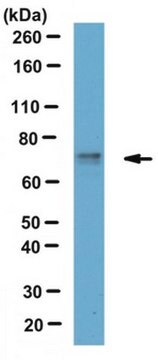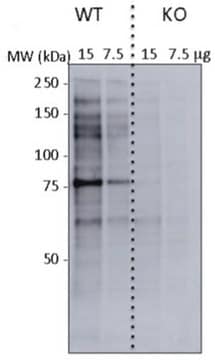IRMM531B
Titanium
IRMM®, certified reference material, 0.5 mm foil
Sign Into View Organizational & Contract Pricing
All Photos(1)
About This Item
Empirical Formula (Hill Notation):
Ti
CAS Number:
Molecular Weight:
47.87
MDL number:
UNSPSC Code:
41116107
PubChem Substance ID:
NACRES:
NA.24
Recommended Products
grade
certified reference material
Agency
IRMM®
autoignition temp.
860 °F
manufacturer/tradename
JRC
resistivity
42.0 μΩ-cm, 20°C
bp
3287 °C (lit.)
mp
1660 °C (lit.)
density
4.5 g/mL at 25 °C (lit.)
format
matrix material
SMILES string
[Ti]
InChI
1S/Ti
InChI key
RTAQQCXQSZGOHL-UHFFFAOYSA-N
Analysis Note
For more information please see:
IRMM531B
IRMM531B
Legal Information
IRMM is a registered trademark of European Commission
Storage Class Code
11 - Combustible Solids
WGK
nwg
Flash Point(F)
Not applicable
Flash Point(C)
Not applicable
Choose from one of the most recent versions:
Certificates of Analysis (COA)
Lot/Batch Number
Sorry, we don't have COAs for this product available online at this time.
If you need assistance, please contact Customer Support.
Already Own This Product?
Find documentation for the products that you have recently purchased in the Document Library.
A Kurbad et al.
International journal of computerized dentistry, 16(2), 125-141 (2013-08-13)
This article presents two novel options for lithium-disilicate restorations supported by single-tooth implants. By using a Ti-Base connector, hybrid abutments and hybrid abutment crowns can be fabricated for different implant systems. The latter option in particular is an interesting new
Jinho Shin et al.
Journal of nanoscience and nanotechnology, 13(8), 5807-5810 (2013-07-26)
In this study, hydroxyapatite (HA) was coated on anodized titanium (Ti) surfaces through radio frequency magnetron sputtering in order to improve biological response of the titanium surface. All the samples were blasted with resorbable blasting media (RBM). RBM-blasted Ti surface
Study of a TiO2 photocatalytic coating for use in plasma catalysis.
K Van Wesenbeeck et al.
Communications in agricultural and applied biological sciences, 78(1), 227-233 (2013-07-24)
R Khataee et al.
Journal of nanoscience and nanotechnology, 13(7), 5109-5114 (2013-08-02)
In the present study, self-cleaning and mechanical properties of white Portland cement by addition of commercial available TiO2 nanoparticles with the average particle size of 80 nm were investigated. X-ray diffraction (XRD), transmission electron microscopy (TEM) and BET were used
D M Rivera-Chacon et al.
Journal of biomedical nanotechnology, 9(6), 1092-1097 (2013-07-19)
Improvements in osteoconduction of implant biomaterials require focusing on the bone-implant interface, which is a complex multifactorial system. Surface topography of implants plays a crucial role at this interface. Nanostructured surfaces have been shown to promote serum protein adsorption and
Our team of scientists has experience in all areas of research including Life Science, Material Science, Chemical Synthesis, Chromatography, Analytical and many others.
Contact Technical Service



